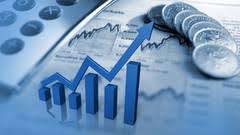In the past decade computers have graduated to running portfolios. Exchange-traded funds (ETFS) and mutual funds automatically track indices of shares and bonds. Last month these vehicles had $4.3trn invested in American equities, exceeding the sums actively run by humans for the first time. A strategy known as smart-beta isolates a statistical characteristic— volatility, say—and loads up on securities that exhibit it. An elite of quantitative hedge funds, most of them on America’s east coast, uses complex black-box mathematics to invest some $1trn. As machines prove themselves in equities and derivatives, they are growing in debt markets, too.

All the while, computers are gaining autonomy. Software programs using AI devise their own strategies without needing human guidance. Some hedgefunders are sceptical about AI but, as processing power grows, so do its abilities. And consider the flow of information, the lifeblood of markets. Human fund managers read reports and meet firms under strict insider-trading and disclosure laws. These are designed to control what is in the public domain and ensure everyone has equal access to it. Now an almost infinite supply of new data and processing power is creating novel ways to assess investments. For example, some funds try to use satellites to track retailers’ car parks, and scrape inflation data from e-commerce sites. Eventually they could have fresher information about firms than even their boards do.
译文由可可原创,仅供学习交流使用,未经许可请勿转载。












